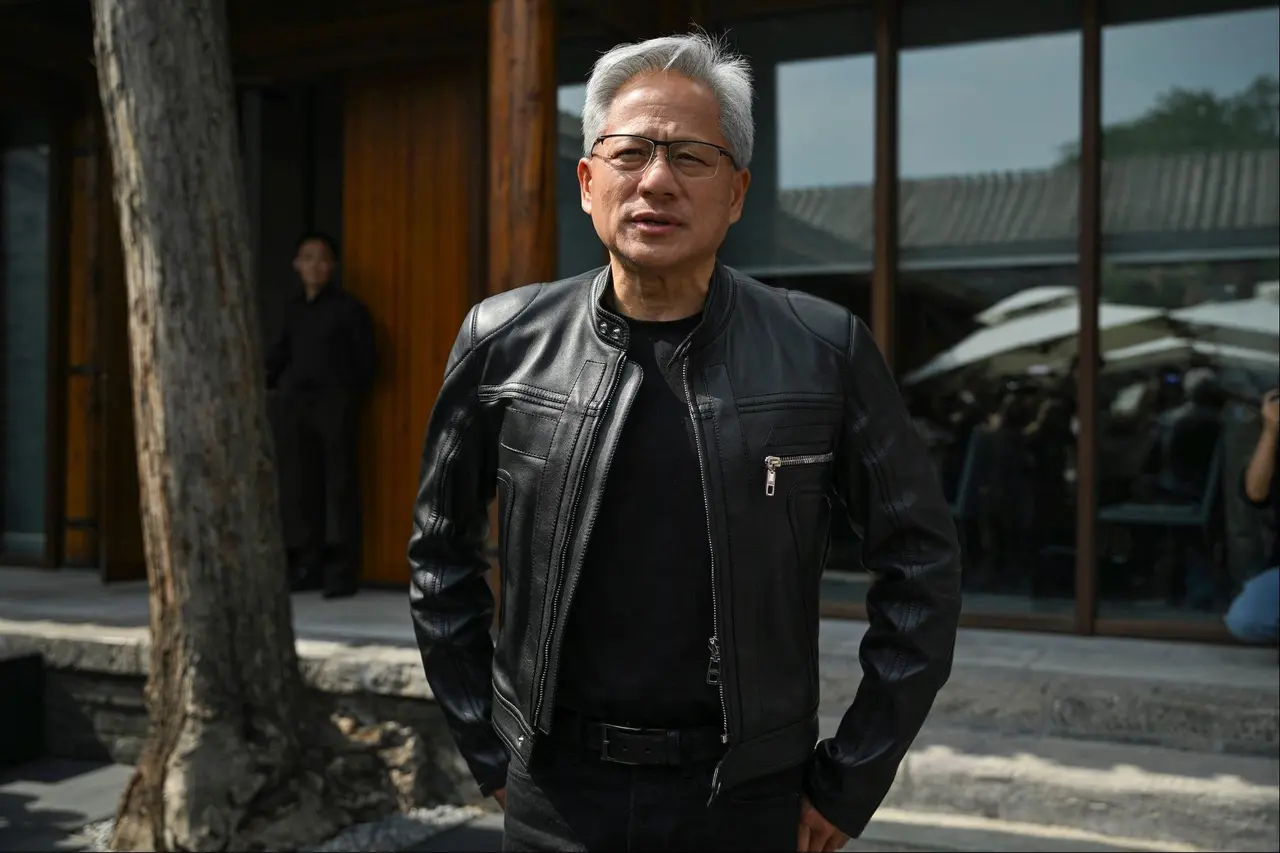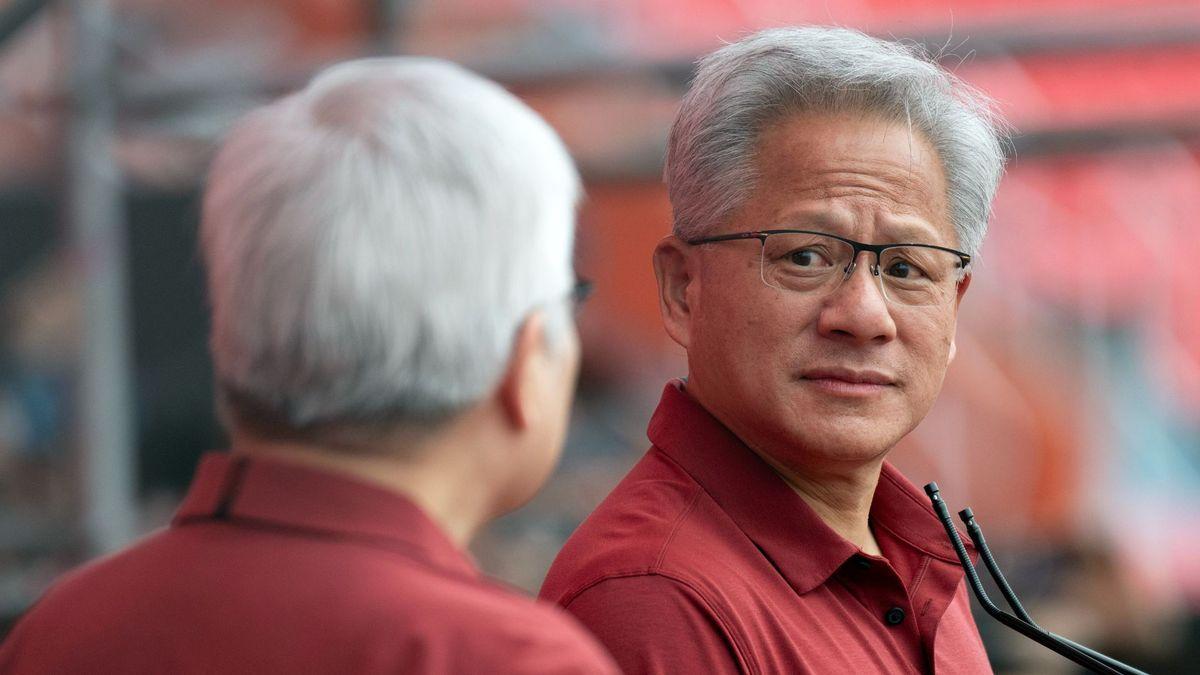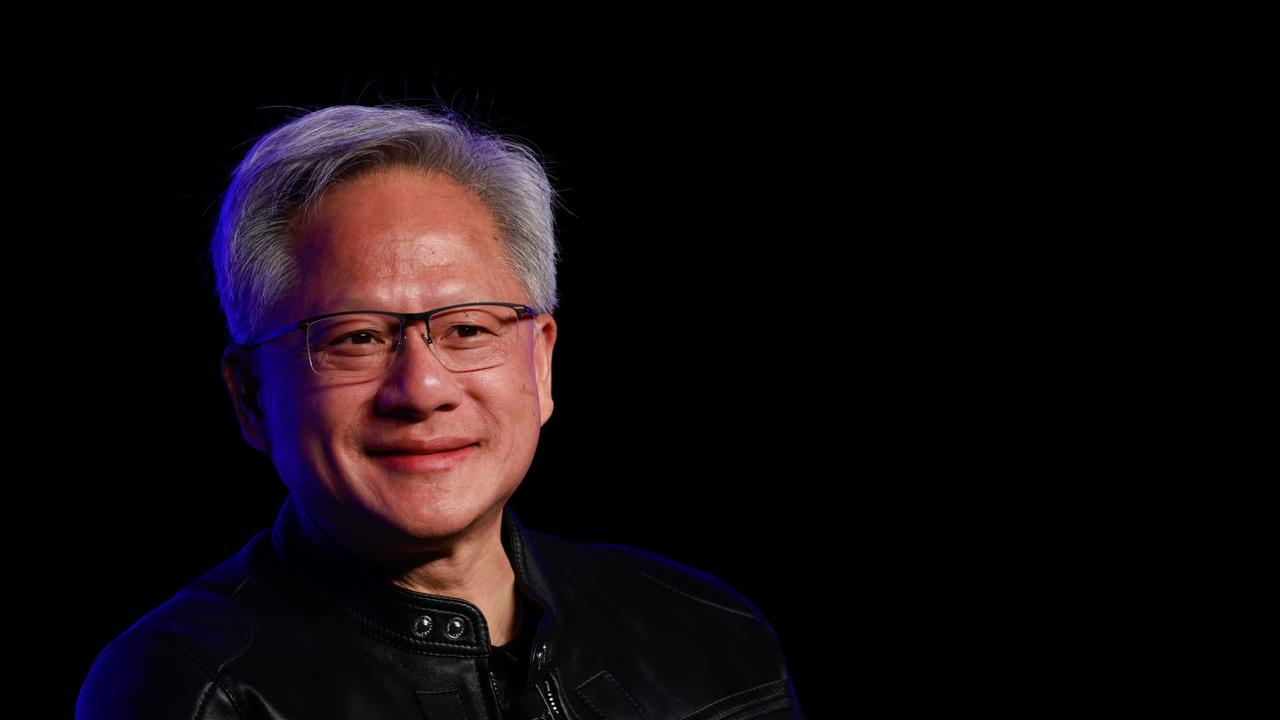Nvidia CEO Jensen Huang Advocates for AI Proficiency in Education and Career Development
3 Sources
3 Sources
[1]
Nvidia CEO: If I were a student today, here's how I'd use AI to do my job better -- it 'doesn't matter' the profession
If Nvidia CEO Jensen Huang were a student again, he'd take advantage of generative AI to have a successful career. "The first thing I would do is to learn AI," Huang said in a January episode of the "Huge Conversations" show with Cleo Abram, mentioning tools like ChatGPT, Gemini Pro and Grok. "Learning how to interact with AI is not unlike being someone who's really good at asking questions," he added. "Prompting AI is very similar. You can't just randomly ask a bunch of questions. Asking AI to be an assistant to you requires some expertise and artistry of how to prompt it." Say you're an entrepreneur and someone asks you: "Tell me about your business?" You'd likely be confused -- business is so complex that a vague question like that is difficult to answer. But what if they asked, "Can you explain the first steps to launching an online retail business?" Now you can give a more pointed, helpful response. The same goes for AI. To ask better questions, try to think of the chatbot as a child, Lazarus AI prompt director Kelly Daniel wrote for CNBC Make It in February. "You're talking to a smart kid. One who wants to make you happy and do what you're asking," Daniel wrote. "But the bottom line is, this kid doesn't know everything you do about your task or business. They're limited by their lack of context and previous experience, and it's your job to provide that context." Organize your prompt clearly and concisely so the AI model can better generate a response, she added. Breaking your instructions down into a list or steps is easier to understand than a lengthy paragraph. And if you have examples of what you want, include that as well. Using Daniel's advice, a good prompt can look like this: I need to give a keynote speech at my company's annual conference. I want it to sound like Bill Gates during his early days at Microsoft. The speech needs to: Huang's insight comes as few young Americans use AI regularly right now -- 11% of Americans ages 14 to 22 say they use generative AI once or twice per week, according to a 2024 report from the Harvard Graduate School of Education, Common Sense Media and Hopelab. Yet, 70% of the skills used in most jobs could change due to the technology by 2030, according to LinkedIn's 2025 Work Change report. Perfecting AI prompts -- and asking better questions in general -- is a skill that will remain relevant for years to come, so students should take the time to develop it, no matter what career field they see themselves in, Huang added. "If I were a student today, irrespective of whether it's for math or science or chemistry or biology -- doesn't matter what field of science I'm going into or what profession -- I'm going to ask myself, 'How can I use AI to do my job better?'" he said. Want a new career that's higher-paying, more flexible or fulfilling? Take CNBC's new online course Make a Powerful Career Change and Land a Job You Love. Expert instructors will teach you strategies to network successfully, revamp your resume and confidently transition into your dream career.
[2]
It is not just about using AI: Nvidia CEO Jensen Huang speaks out on future-proofing your career - 'Prompting AI requires some artistry'
Jensen Huang, the visionary behind Nvidia, has advice for students: treat AI like your smartest classmate. In an era where 70% of job skills are set to evolve by 2030, Huang urges young minds to learn the art of prompting AI. From chemistry to business, it's not about what you study -- it's about how creatively you collaborate with machines.If you had the chance to sit across the table from one of the world's most influential tech CEOs and ask how to future-proof your career, what would you hope to hear? For Nvidia CEO Jensen Huang, the answer is simple and surprisingly personal. "If I were a student today, irrespective of whether it's for math or science or chemistry or biology -- it doesn't matter what field of science I'm going into or what profession -- I'm going to ask myself, 'How can I use AI to do my job better?'" he said during a candid conversation on the Huge Conversations podcast with Cleo Abram. This wasn't just corporate lip service. It was a glimpse into how one of tech's biggest names views the future of work -- and the evolving role of artificial intelligence in it. According to Huang, the real magic of AI isn't just in using it -- it's in knowing how to use it. Tools like ChatGPT, Gemini Pro, and Grok are now widely accessible, but using them effectively is a skill in itself. "Learning how to interact with AI is not unlike being someone who's really good at asking questions," Huang explained. "Prompting AI is very similar... it requires some expertise and artistry." He draws a comparison that makes perfect sense: Imagine you're an entrepreneur, and someone asks, "Tell me about your business." It's so broad, it's almost impossible to answer meaningfully. But ask, "What are the first steps to launching an online retail business?" -- and suddenly, you've opened the door to useful, actionable insight. Huang's advice isn't abstract theory -- it's a call to action. A 2024 study by Harvard Graduate School of Education, Common Sense Media, and Hopelab found that just 11% of Americans aged 14 to 22 use generative AI more than once or twice a week. And yet, LinkedIn's 2025 Work Change report forecasts that 70% of the skills used in most jobs could change by 2030 due to AI. That means the future won't just reward those who memorize facts or formulas. It will reward those who can ask better questions -- who can collaborate with machines to stretch the limits of what's possible. So what does it take to thrive in the AI-powered future? According to Jensen Huang, it starts with curiosity, strategy, and the courage to ask the right questions. Whether you're studying history or computer science, whether you dream of a lab coat or a boardroom -- learning how to speak AI may be the single most important skill you can pick up today. As Huang put it, "The first thing I would do is to learn AI." And perhaps, that's what will separate the dreamers from the doers in tomorrow's world.
[3]
If I Were A Student Today, Here's How I'd Use AI To Do My Job Better, Says Nvidia CEO - NVIDIA (NASDAQ:NVDA)
In a recent conversation, Nvidia NVDA CEO Jensen Huang expressed his belief in the potential of artificial intelligence (AI) to bolster students' career prospects and job performance. What Happened: Huang suggested that if he were a student today, he would utilize the capabilities of generative AI to enhance his career opportunities. Huang stressed the significance of learning to engage with AI, likening it to the skill of posing insightful questions. He further underscored the necessity for proficiency in directing AI to provide effective assistance. During the interview, Huang said that AI can be perceived as an intelligent child that requires precise and succinct instructions to produce a beneficial response. He referred to Kelly Daniel, Lazarus AI prompt director, who recommended structuring instructions into a list or steps for improved comprehension. "The first thing I would do is to learn AI. Learning how to interact with AI is not unlike being someone who's really good at asking questions. Prompting AI is very similar. You can't just randomly ask a bunch of questions. Asking AI to be an assistant to you requires some expertise and artistry of how to prompt it," he said. Also Read: Nvidia CEO Jensen Huang's Joke Sparks Concerns Over Rapid Depreciation Of AI Chips Despite only 11% of young Americans regularly using AI, Huang is confident that AI proficiencies will continue to be pertinent in the future. "If I were a student today, irrespective of whether it's for math or science or chemistry or biology -- doesn't matter what field of science I'm going into or what profession -- I'm going to ask myself, 'How can I use AI to do my job better?'" he added. He urged students to investigate how AI can be leveraged to augment their job performance, irrespective of their academic discipline or career. Why It Matters: Huang's comments underscore the growing recognition of AI as a critical tool in the modern workplace. With AI technologies becoming increasingly integrated into various industries, the ability to effectively interact with and utilize AI could be a significant advantage for students entering the workforce. Furthermore, Huang's analogy of AI as a "smart child" highlights the importance of clear communication in eliciting useful responses from AI systems. This insight could help shape educational strategies for teaching AI interaction skills. Read Next Nvidia's Huang Sees AI Employees On The Horizon Image: Shutterstock/jamesonwu1972 NVDANVIDIA Corp$132.10-2.02%Stock Score Locked: Want to See it? Benzinga Rankings give you vital metrics on any stock - anytime. Reveal Full ScoreEdge RankingsMomentum83.62Growth95.02Quality94.05Value6.46Price TrendShortMediumLongOverview This content was partially produced with the help of AI tools and was reviewed and published by Benzinga editors. Market News and Data brought to you by Benzinga APIs
Share
Share
Copy Link
Jensen Huang, CEO of Nvidia, emphasizes the importance of learning to interact with AI for students and professionals across all fields, highlighting its potential to enhance job performance and career prospects.

Nvidia CEO Advocates for AI Proficiency in Education
Jensen Huang, CEO of Nvidia, has recently shared his insights on the importance of artificial intelligence (AI) in education and career development. In a conversation on the "Huge Conversations" show with Cleo Abram, Huang emphasized that if he were a student today, he would prioritize learning AI to enhance his career prospects
1
.The Art of Interacting with AI
Huang likens the skill of interacting with AI to being adept at asking questions. He states, "Learning how to interact with AI is not unlike being someone who's really good at asking questions. Prompting AI is very similar. You can't just randomly ask a bunch of questions. Asking AI to be an assistant to you requires some expertise and artistry of how to prompt it"
2
.AI as a Smart Child
To better understand how to interact with AI, Huang suggests thinking of it as a smart child. Kelly Daniel, Lazarus AI prompt director, advises, "You're talking to a smart kid. One who wants to make you happy and do what you're asking. But the bottom line is, this kid doesn't know everything you do about your task or business. They're limited by their lack of context and previous experience, and it's your job to provide that context"
1
.The Future of Work and AI
Huang's insights come at a crucial time. According to LinkedIn's 2025 Work Change report, 70% of the skills used in most jobs could change due to AI technology by 2030
1
. Despite this, a 2024 study by Harvard Graduate School of Education, Common Sense Media, and Hopelab found that only 11% of Americans aged 14 to 22 use generative AI more than once or twice a week2
.Related Stories
AI Across All Disciplines
Huang emphasizes that the importance of AI transcends specific fields of study. He states, "If I were a student today, irrespective of whether it's for math or science or chemistry or biology -- it doesn't matter what field of science I'm going into or what profession -- I'm going to ask myself, 'How can I use AI to do my job better?'"
3
.Practical Tips for AI Interaction
To effectively use AI, Huang and Daniel suggest:
- Organize prompts clearly and concisely
- Break instructions into lists or steps
- Include examples of desired outcomes when possible
- Provide context and specific details to guide the AI's response
1
As AI continues to reshape the job market and educational landscape, Huang's advice serves as a call to action for students and professionals alike to embrace AI as a powerful tool for career enhancement and personal growth.
References
Summarized by
Navi
Related Stories
Nvidia CEO Jensen Huang Advocates for Personal AI Tutors, Predicting a Future of Enhanced Learning and Productivity
27 Feb 2025•Technology

Nvidia CEO Jensen Huang Advocates for Physical Sciences in the Age of AI
19 Jul 2025•Technology

Nvidia CEO Jensen Huang Pushes for Maximum AI Automation While Promising Job Security
25 Nov 2025•Business and Economy

Recent Highlights
1
ByteDance Faces Hollywood Backlash After Seedance 2.0 Creates Unauthorized Celebrity Deepfakes
Technology

2
Microsoft AI chief predicts artificial intelligence will automate most white-collar jobs in 18 months
Business and Economy

3
Google reports state-sponsored hackers exploit Gemini AI across all stages of cyberattacks
Technology





